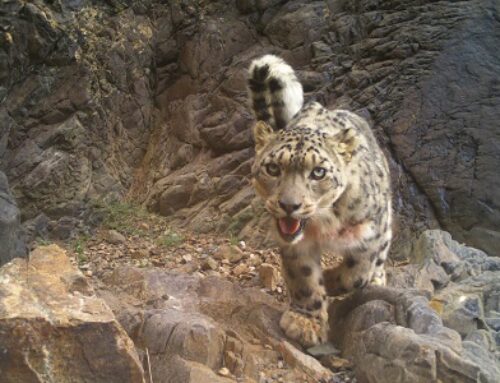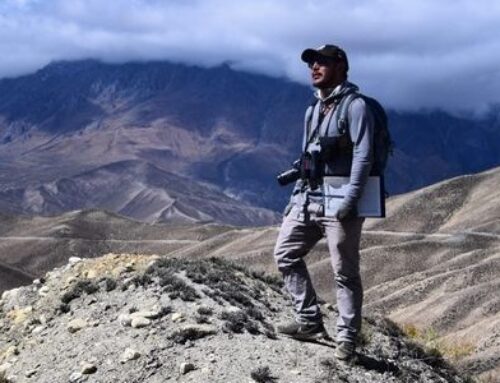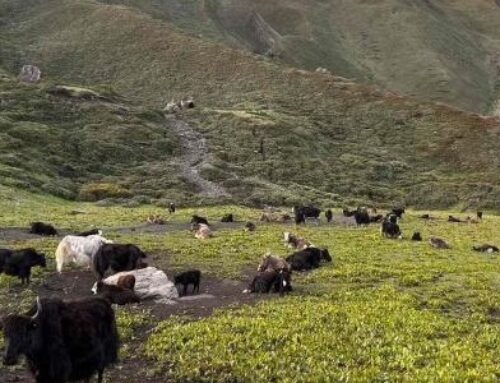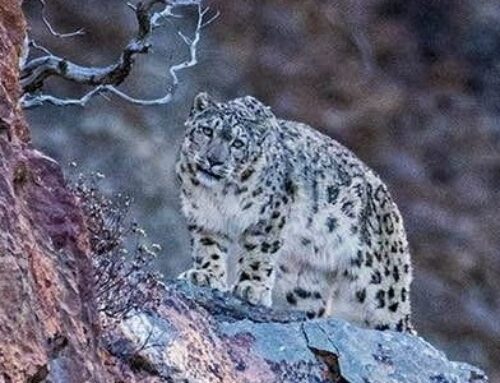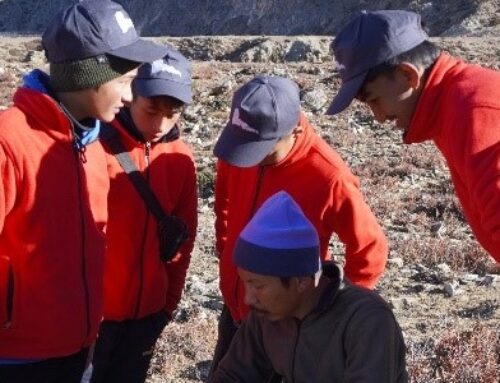For over a decade, the Conservancy has been actively involved in snow leopard conservation in the Mustang District of Nepal, which straddles the Himalayas and extends northward onto the Tibetan Plateau. The district is part of the Annapurna Conservation Area; of the 77 districts of Nepal, it is the fifth largest but is one of the least populated, second only to Manang, being primarily an agropastoral society. With dependence on livestock as the main source of income, depredation is a serious concern.
Our work toward a more peaceful coexistence between people and predators was originally concentrated in the Upper Mustang area, but in 2021, we began to work with the local communities of Lower Mustang.
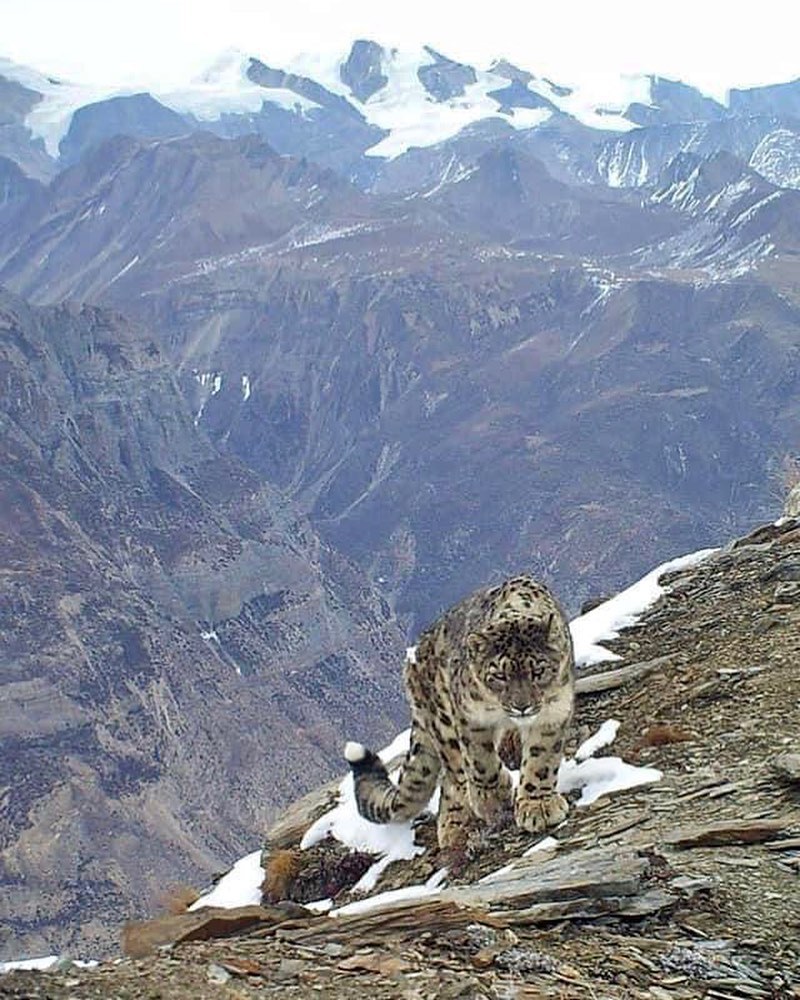
Photo by Tashi R. Ghale
Community-Driven Conservation of Snow Leopard Program
Niraj Thakali joined the Conservancy team in the summer of 2022 as a field monitor and facilitator, primarily responsible for implementing this program in Lower Mustang. He received mentoring support from Dr. Shailendra Thakali, Advisor for Mountain Spirit, a Kathmandu-based national non-governmental organization.
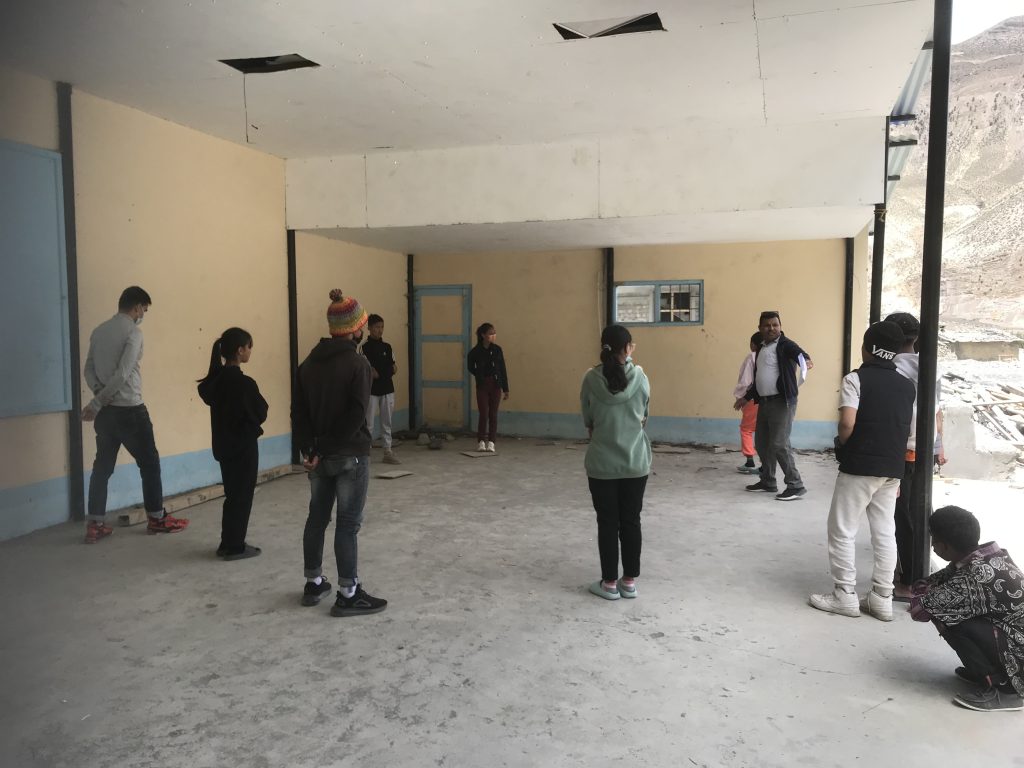
Students Preparing for Production of Street Drama
Program Goals & Objectives
The primary goal of the program is to protect snow leopards and their habitat through implementation and promotion of community actions. The objectives of the program include:
-
Generating public awareness about the status of snow leopards and their conservation needs.
-
Supporting small-scale community activities to reduce potential conflicts between snow leopards and local communities, particularly herders.
-
Introducing snow leopard deterrent devices to safeguard livestock from depredation.
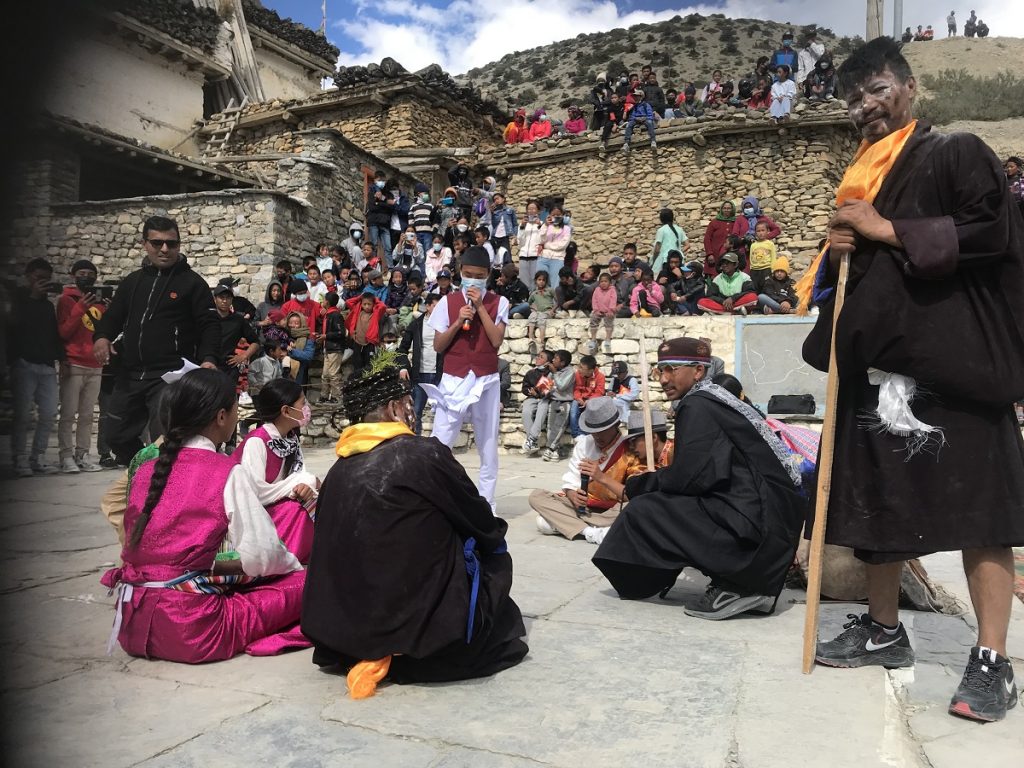
Student Production of Street Drama
Program Components
Street Dramas
One component of the conservation program is the student production of a street drama, an effective tool to raise public awareness about the ecological importance of the snow leopard and biodiversity conservation.
The street drama, based on a real depredation incident, was performed twice in 2022 by Snow Leopard Scouts. One performance took place at a local fair for a large audience of around 600, and another was performed for a parent-day program at a local school with approximately 400 attendees.
The message conveyed was that while livestock depredation does occur, those incidents can be avoided by properly securing corral doors and windows. Snow leopards are protected by law in Nepal, with retaliatory killings resulting in heavy fines or jail time. So, prevention is key. The production also relayed the message that if depredation does occur, there are governmental policies in place to compensate herders and farmers for livestock losses.
The students were enthusiastic about their participation and recommended continuing with conservation awareness-raising programs, including International Snow Leopard Day celebrations and inter-school literary competitions, along with future street dramas.
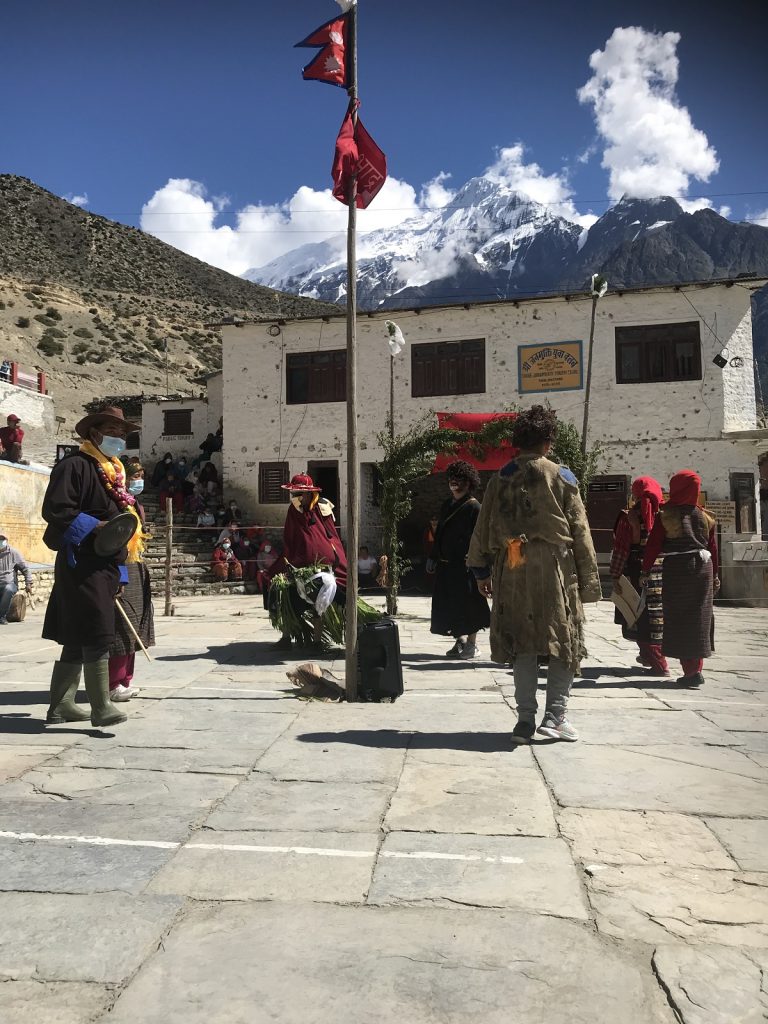
Student Production of Street Drama
Community Grant
A modest community grant was provided to incentivize community-based organizations like Mother Groups whose main function is to promote the welfare of women, mainly through savings and credit schemes. Mother Groups also play an important role in raising awareness about snow leopard conservation and sharing information about snow leopard conservation-related policies.
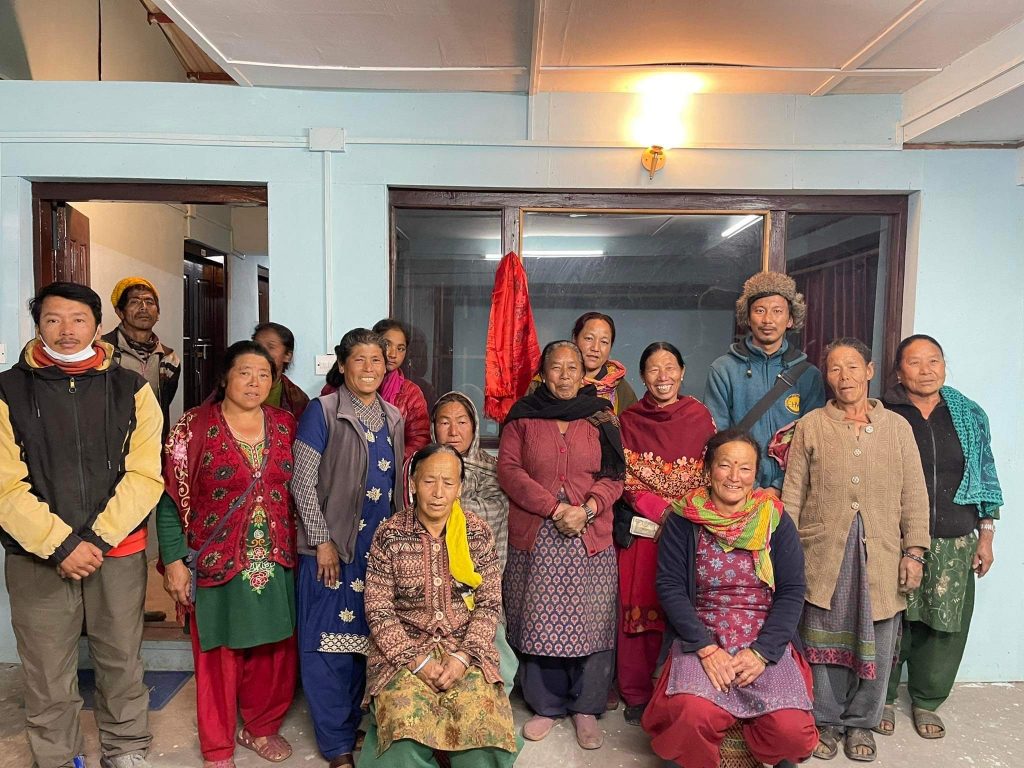
Mother Group
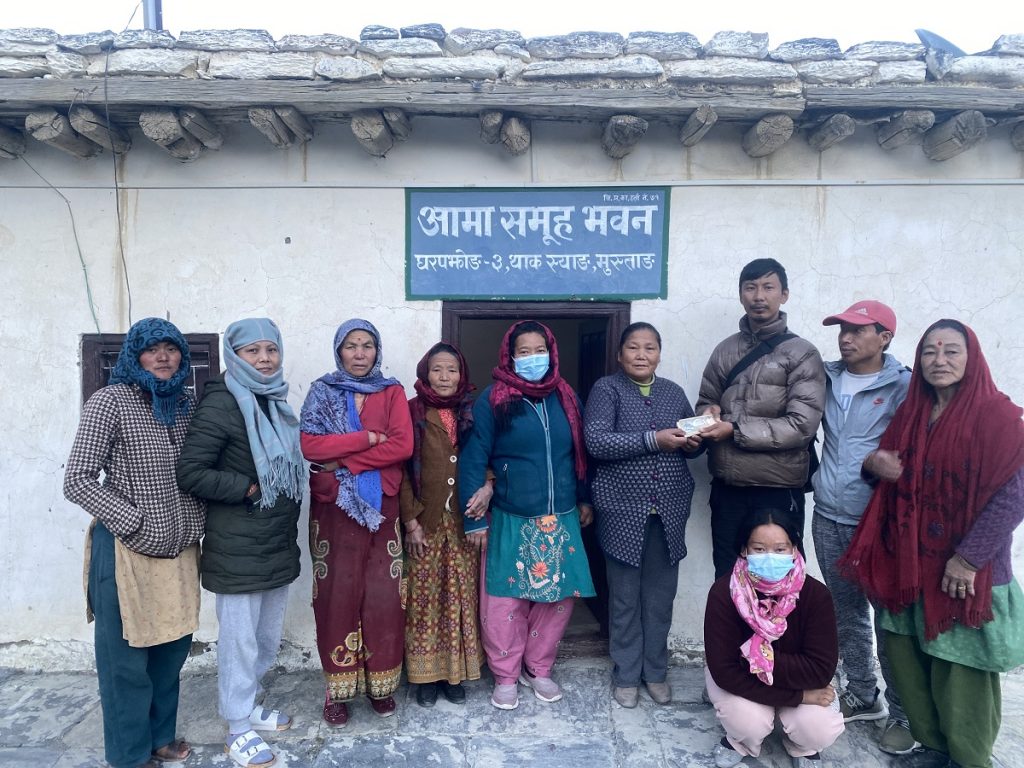
Mother Group
Herder Workshops
Two workshops were held in 2022 for both livestock owners and the herders they employ. Topics discussed were the importance of protecting snow leopards and identifying signs of their presence, exploring a variety of guarding techniques and corral construction, and implementing the use of predator-deterrent devices. Workshops also covered government compensation policies and procedures for filing claims.
Participants found the workshops to be useful and in particular were very interested in the use of Foxlights nighttime predator deterrents and corral improvements. However, the challenges of finding someone to watch livestock in the herders’ absence necessitates finding additional ways to provide them with information and training.
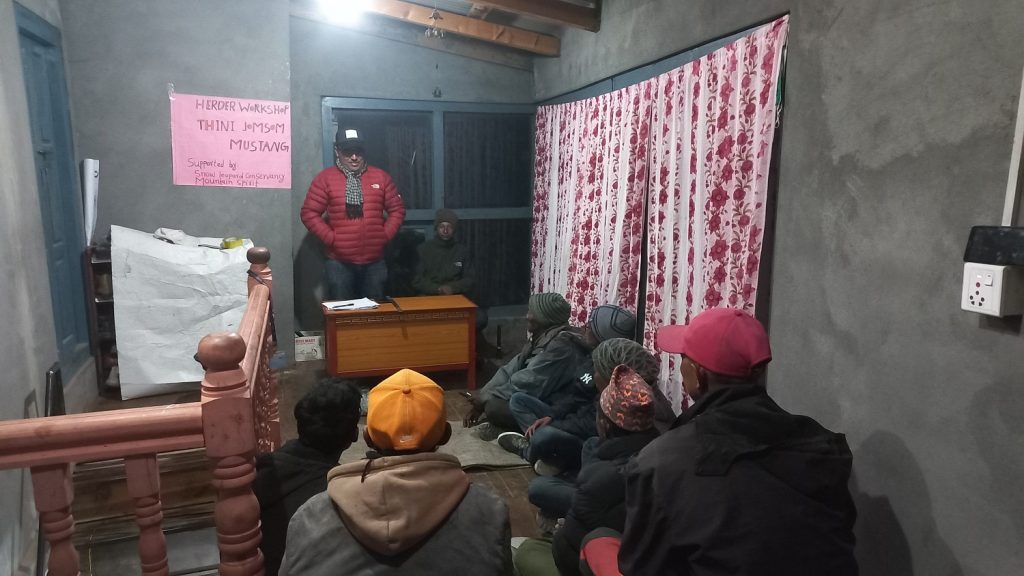
Herder Workshop
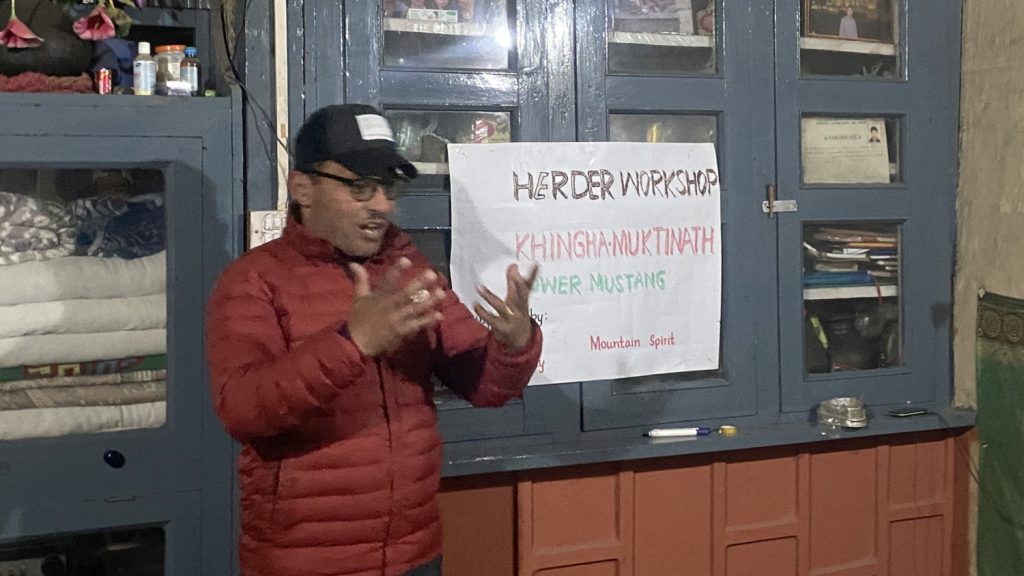
Herder Workshop
Corral Improvements
The majority of corrals in this region are built with mud and stones, and old corrals have flat mud roofs with only a small opening for light. While newer corrals do employ the use of corrugated metal sheets for roofing, the windows and doors are usually made of wood, which can easily be forced open. Predator proofing of corrals is focused on securing the windows and doors. Currently, with the support of the Snow Leopard Conservancy, there are two new corrals under construction.
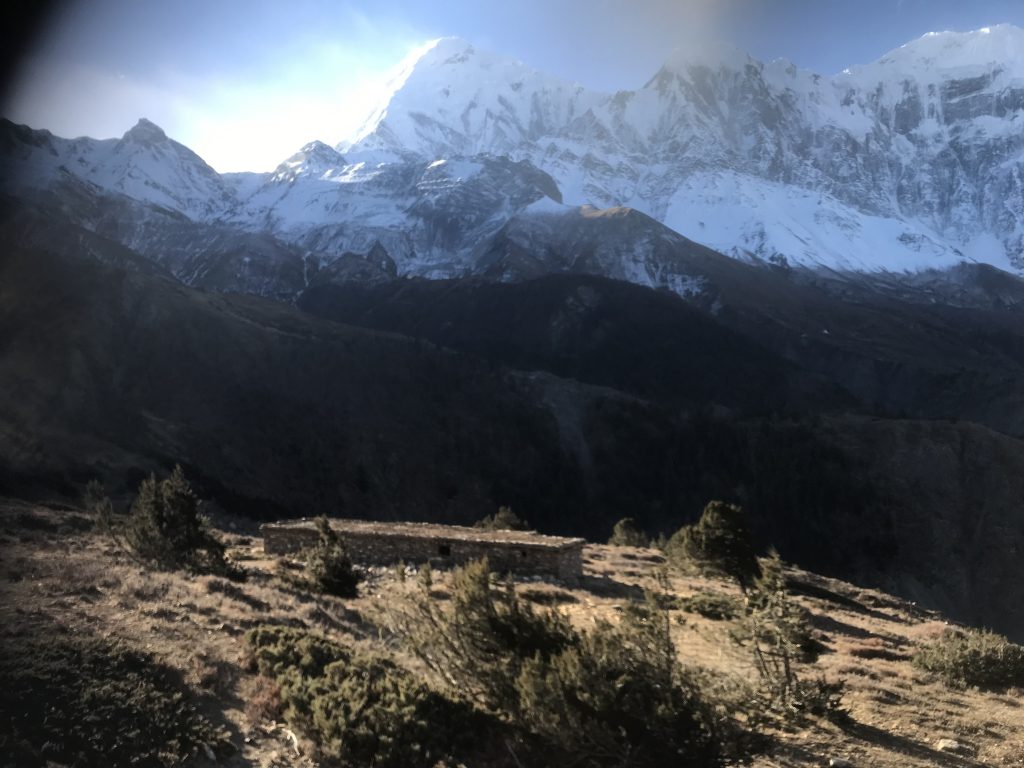
Corral Improvements
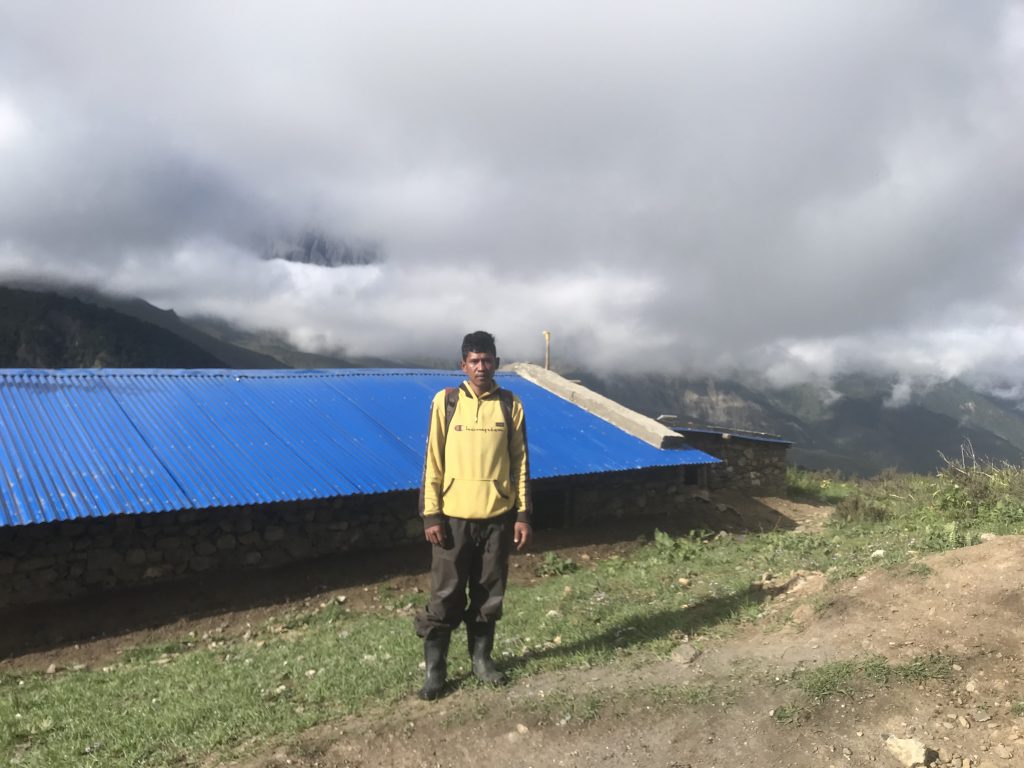
Corral Improvements
Livestock Insurance
Lupra is a village vulnerable to snow leopard depredation, having lost nine goats in 2022. The village has a goat owner cooperative made up of 11 livestock owners, who together own 600 goats; none of which were initially insured.
Insurance can provide relief to herders by reimbursing them for three-quarters of the market value of their lost livestock. In addition to covering depredation loss, the insurance will also cover loss due to natural disasters such as heavy snowfalls or avalanches.
Despite these benefits, herders had not insured their livestock, either because they were unaware of the insurance policies and the benefits associated with them; they perceived the process to file a claim would be too difficult; or the insurance company representatives were unwilling to travel to remote areas to provide the coverage.
This past year, the program worked with the insurance provider to encourage livestock owners and herders to obtain insurance and offered to pay 50% of the livestock owners’ premium cost. As a result, 305 goats belonging to nine members of the cooperative were insured.
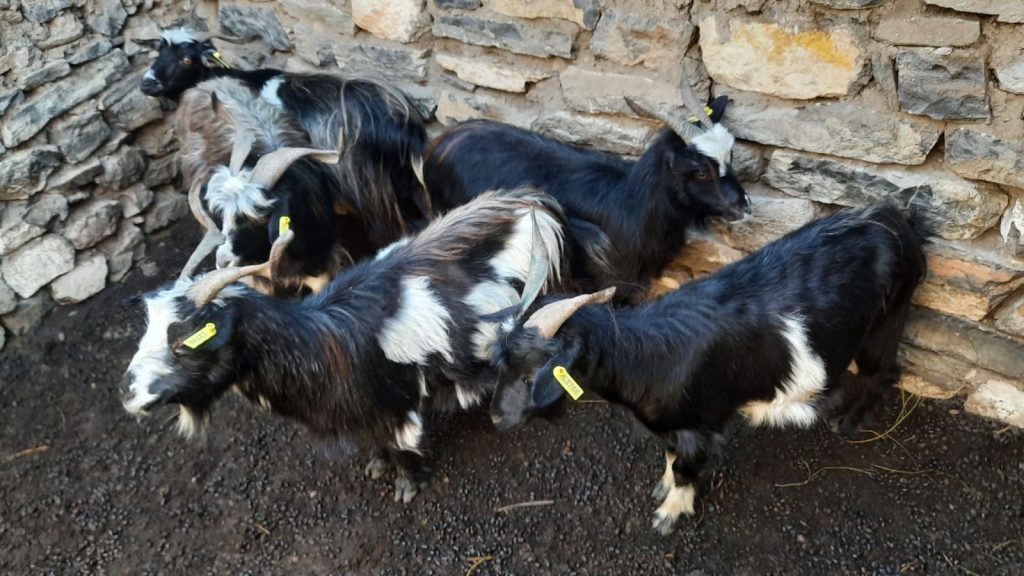
Insured Livestock
Solar Light Support
Solar light sets are used for lighting corrals and also for charging mobile phones, flashlights, and radios. Their use replaces the need for pine kindling for lighting and reduces the use of batteries, which is a win-win for both herders and the environment. Ten sets were provided to a goat-raising farmer group, with the program sharing 50% of the cost. Solar light sets are a beneficial contribution to improved livestock guarding practices.
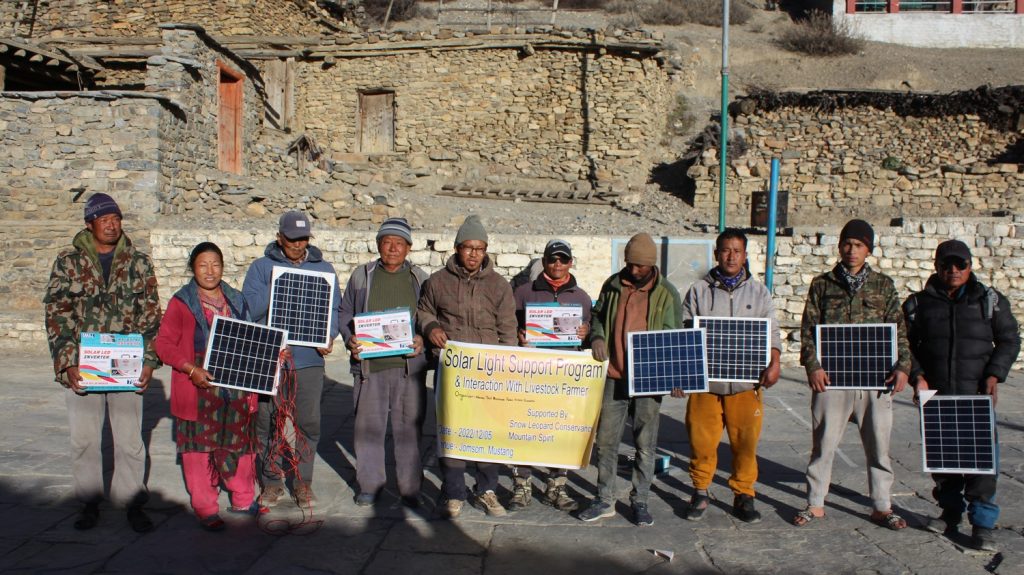
Foxlight Nighttime Predator Deterrents
Foxlights are a solar-powered battery-operated flashing light system used to deter predators from approaching nighttime livestock corrals, with a proven impressive success rate.
Eight Foxlights were supplied to local herders in November of 2022 by the Conservancy. Prior to their distribution, a training session and field demonstration were held to provide practical knowledge about Foxlight installation and use.
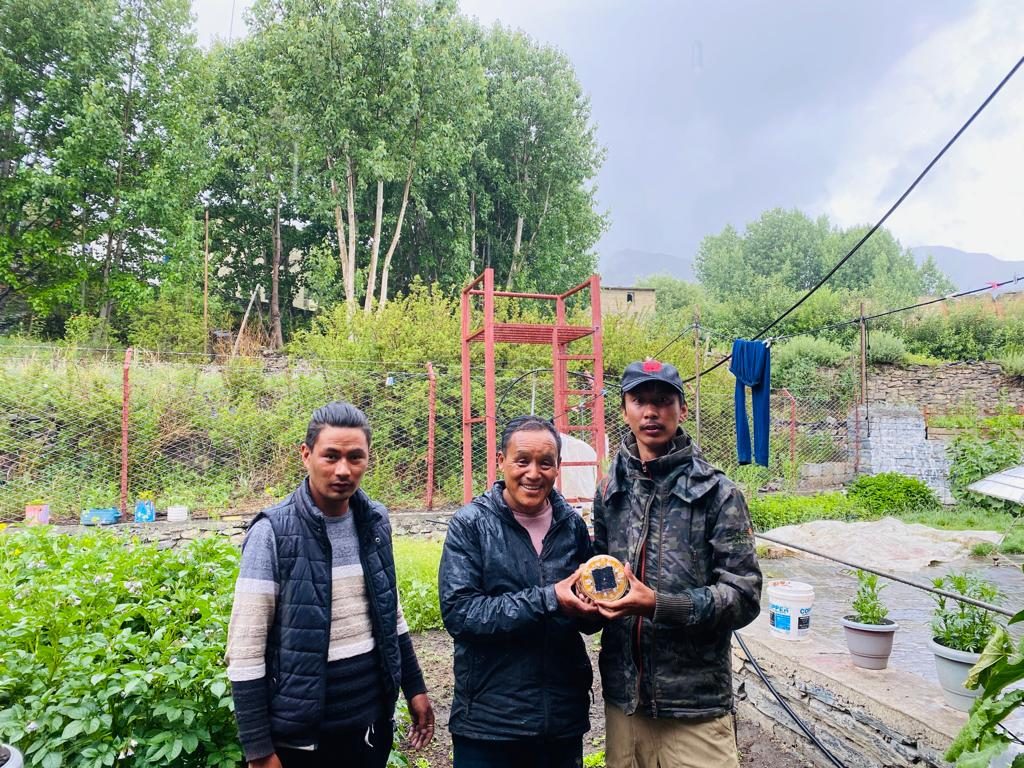
Distributing Foxlights
Looking Forward
Participants in the Community-Driven Conservation of Snow Leopard Program are looking forward to expanding program activities in 2023:
-
By continuing to work with schools to implement further activities such as International Snow Leopard Day celebrations and inter-school literary competitions
-
Insuring 2 more farmer groups
-
Organizing 4 herder workshops and exploring additional ways to disseminate information among herders and livestock owners
-
Providing support for Mother Groups, including 4 new groups
-
Identifying 6 corrals that require predator proofing
-
Dispersing an additional 15 solar light sets and 40 Foxlights
-
Initiating a pilot program for electric fencing

